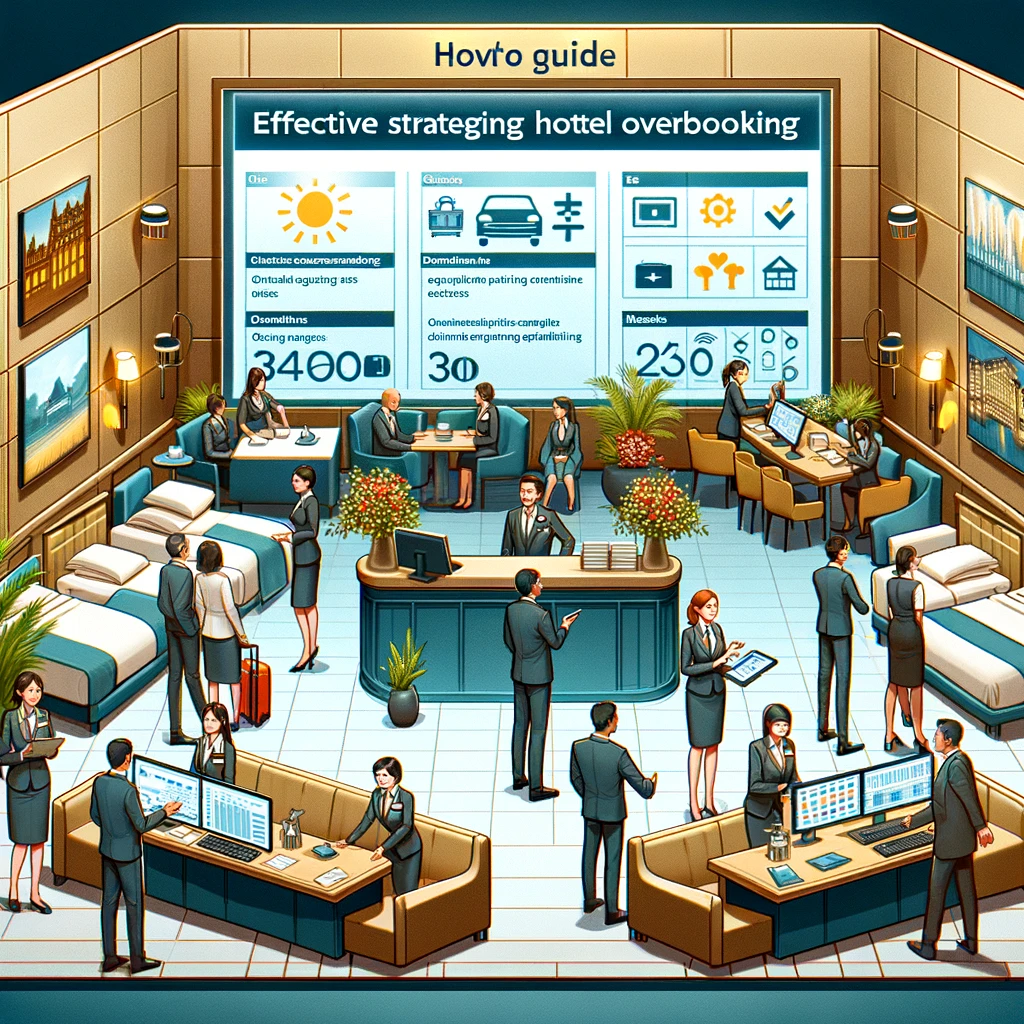There’s no doubt that hotel overbookings can be a challenging and stressful situation for both hotel staff and guests. In this how-to guide, we will provide you with effective strategies on how to handle hotel overbookings with professionalism and tact. By following these practical tips and proven tactics, you will be equipped to navigate this common hospitality industry issue with confidence and efficiency. From communication techniques to alternative accommodation options, this guide will help you effectively manage overbookings and ensure a positive experience for guests, even in the face of unexpected challenges.
Table of Contents
Preemptive Strategies
Right-sizing Inventory
Before the peak booking season begins, it’s crucial to analyze historical data and trends to right-size your inventory. Utilize tools and software to forecast demand accurately, considering events, holidays, and other influencing factors. By effectively managing your inventory based on anticipated demand, you can reduce the likelihood of overbookings.
Leveraging Technology for Real-Time Booking Management
On the day of arrival, hotels can implement a real-time monitoring system that syncs bookings with actual room availability. By leveraging technology such as a cloud-based property management system, hotels can automate the process of updating booking information across all channels instantly. This proactive approach helps in avoiding discrepancies and ensures a seamless check-in experience for guests.
Any
Any delay or miscommunication in updating booking information can lead to chaos during check-ins and potentially result in guest dissatisfaction. Therefore, investing in a robust technology infrastructure that enables real-time booking updates is important for preemptively handling overbookings.
Booking
On-the-Spot Handling Tips
There’s a delicate art to handling hotel overbookings effectively on the spot. Your response can make all the difference in maintaining guest satisfaction and loyalty. Here are some key tips to navigate these situations:
- Stay calm and apologize sincerely for the inconvenience caused to the guest.
- Offer alternative accommodation or upgrades if possible.
- Ensure clear communication with both the affected guest and the team to avoid confusion or further complications.
- Handle the situation promptly and efficiently to minimize guest distress.
Perceiving the situation from the guest’s perspective can help you better understand their frustrations and tailor your response accordingly. Effective communication and swift action are crucial in resolving overbooking issues and retaining guest trust.
Communication Protocols for Overbooking Situations
Now, in overbooking situations, clear and transparent communication is key. Inform the guest about the situation, explain the reasons behind it, and offer solutions or alternatives to accommodate them. Be empathetic and acknowledge their inconvenience while ensuring that they feel valued and heard.
Compensatory Offers and Upgrades
You can often defuse a tense situation by offering compensatory gestures such as complimentary meals, room upgrades, or discounts on future stays. These gestures not only help appease the guest but also showcase your commitment to guest satisfaction and service excellence.
The decision to offer compensatory gestures should be made based on the severity of the inconvenience caused and the guest’s level of dissatisfaction. Always follow up with a personal apology and ensure that the guest leaves feeling valued and supported by the hotel staff.
Staff Training and Empowerment
Empathetic Customer Service
Training your staff to deliver empathetic customer service is crucial in handling hotel overbookings effectively. Empathy allows staff members to understand the guest’s perspective and offer sincere apologies and solutions to the problem at hand. This human touch can go a long way in diffusing tense situations and enhancing overall guest satisfaction.
Decision-Making in High-Pressure Scenarios
Training your staff to make quick and effective decisions in high-pressure scenarios is key to resolving hotel overbookings efficiently. In these situations, employees must be empowered to assess the situation, prioritize tasks, and make decisions that are in the best interest of both the guest and the hotel. Providing them with the tools and confidence to handle these challenges will ultimately lead to better outcomes for all parties involved.
For instance, in a case of overbooking where a guest is already settled in their room, staff must be able to think on their feet and find alternative accommodation within the hotel or nearby. Empowering them with the authority to make decisions on upgrades, compensation, or alternative arrangements can help resolve the issue swiftly and to the guest’s satisfaction.
Proactive Customer Service
Proactive Notification Processes
Many hotels face the challenging situation of overbookings, which can lead to frustration and dissatisfaction among guests. Implementing proactive notification processes is crucial in handling such scenarios effectively. By communicating with guests in advance about the situation, offering alternative accommodations, and providing compensation or incentives, hotels can minimize the impact of overbookings on customer experience.
Building Positive Relationships Through Transparency
Assuming responsibility and being transparent with guests is key to building positive relationships, even in the face of overbookings. Clearly explaining the situation, the reasons behind it, and the steps being taken to rectify it can help guests feel valued and respected. This transparency fosters trust and loyalty, turning a potentially negative experience into a positive one.
Even in challenging situations such as overbookings, hotels can strengthen their relationships with guests by demonstrating honesty, empathy, and a commitment to customer satisfaction. By prioritizing transparency and communication, hotels can not only resolve overbookings effectively but also enhance guest trust and loyalty in the long run.
Analyzing and Learning
Tracking Overbooking Patterns
Despite best efforts, hotel overbookings can still occur. To minimize the impact on guest experience and revenue, tracking overbooking patterns is crucial. By analyzing historical data, you can identify trends and peak periods where overbookings are more likely to happen. This information allows you to proactively adjust your booking strategy and inventory management to avoid future overbookings.
Implementing Feedback Loops and Continuous Improvement
Loops You must create feedback loops within your team and with your technology systems to continuously improve your overbooking management. Collect feedback from front desk staff, reservations team, and guests to understand the root causes of overbookings. Implement a system where this feedback is analyzed regularly, and action plans are created to address any issues identified. By fostering a culture of continuous improvement, you can refine your overbooking processes and minimize the risk of future incidents.
To further enhance this process, consider implementing automated alerts that notify you when booking thresholds are approaching or when patterns indicate a potential overbooking situation. By utilizing technology tools that provide real-time data and insights, you can react swiftly and effectively to prevent overbookings and ensure a seamless guest experience.
Summing up
Conclusively, effective strategies for handling hotel overbookings are critical to maintaining a positive guest experience and reputation. By implementing proactive measures such as using forecasting tools, establishing clear policies, offering compensation options, and proactive communication, hotels can navigate overbookings with ease and professionalism. It is necessary to prioritize guest satisfaction while also ensuring operational efficiency, and by following this how-to guide, hotels can effectively manage overbookings and minimize any negative impact on their business.










